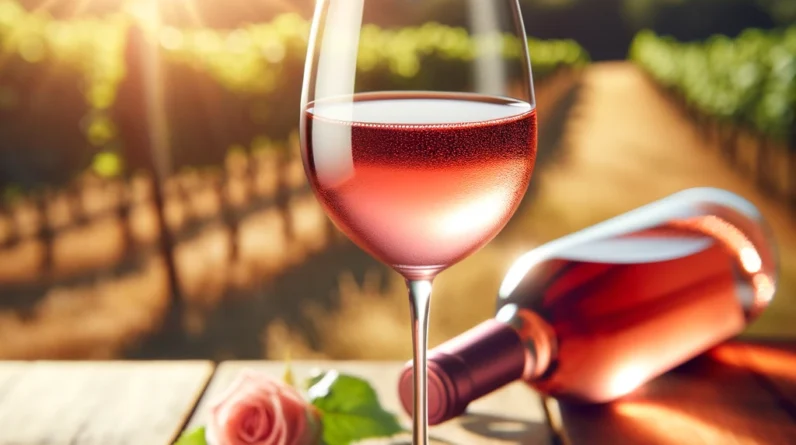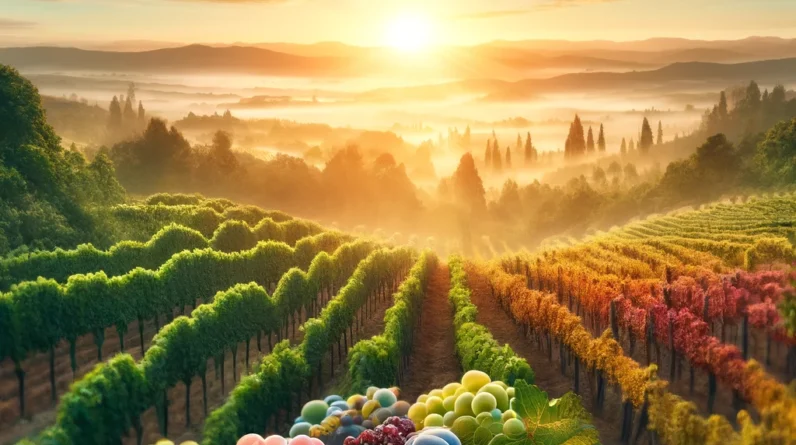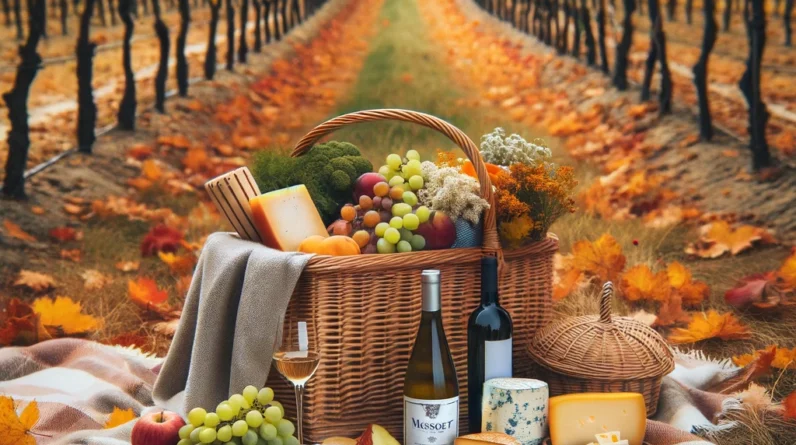
The Rising Green Movement and Its Impact on Agriculture
Gone are the days when “going green” was just a catchphrase.
Today, sustainability and the organic movement aren’t just trends.
They’re a necessity.
And while many of us proudly sport our reusable bags and binge on organic apples, there’s another player in town – biodynamic farming. Intrigued? Let’s dive in.
Demystifying Biodynamic Wine: A Comprehensive Guide
The Biodynamic Farming and Gardening Association phrases it best.
Biodynamic farming is a “spiritual-ethical-ecological” dance of nature.
Think of a vineyard as a living, breathing entity.
Everything connects, from the tiniest insect to the vast sky overhead.
And the goal? Achieve a self-sustaining, harmonious ecosystem. No chemicals allowed.

But what’s this hubbub about animals?
Imagine a setting where ducks, horses, and sheep roam freely, making the soil richer, fostering biodiversity.
It sounds idyllic, but it’s real.
Some might raise eyebrows, questioning the science behind it.
And yes, skepticism exists, but results are there, showing benefits in yield, soil health, and energy efficiency.
A Historical Dive into Biodynamic Farming
Enter Rudolf Steiner, an Austrian philosopher.
In the roaring 1920s, before “organic” became a buzzword, he introduced biodynamic agriculture.
It wasn’t just about soil and plants.
For Steiner, the moon’s phases and stars’ positions mattered.
Yes, astrology and farming, intertwined.
It’s a blend of science and spirituality, a cosmic dance with the earth.
Crafting the Perfect Biodynamic Wine: A Step-by-Step Exploration
Ready to craft biodynamic wine?
First, picture a vineyard where nature reigns.
No chemicals, just natural concoctions and composts.
Next, the biodynamic calendar takes the stage, guiding tasks from pruning to harvesting.
Ever heard of root days or flower days?
They’re part of this playbook, inspired by Earth’s classic elements.

And the cow horn?
That’s a biodynamic special!
Stuffed with manure compost, buried through winter, and later spread across the vineyard.
Odd? Perhaps.
But essential? Absolutely.
It supercharges the soil, balancing pH levels, and promoting seed germination.
Then there are other concoctions like yarrow and chamomile, each with a unique role in this biodynamic ballet.
Biodynamic Wine vs. Organic Wine: Clarifying the Differences
Let’s set the record straight.
Biodynamic wine isn’t just organic wine’s twin.
While both shun chemicals, biodynamic wine goes a step further.
It’s not just about grapes.
It’s about the vineyard’s very soul – the plants, insects, and animals.
The lunar cycles, the cosmos.
It’s holistic, deeply rooted in nature and cosmos alike.
The Current Landscape of Biodynamic Wine Production
Pop quiz: How many biodynamic wine producers exist today?
Over 700!
Brands like Nicolas Joly and Montinore Estate lead the charge, championing this sustainable viticulture globally.
The Palate’s Perspective: Tasting Biodynamic Wine
Now, the million-dollar question.
Does biodynamic wine taste different?
It’s subjective.
While you might not blind taste a wine and shout, “That’s biodynamic!”, many believe a synergy of organic fruit and nature-aligned practices gives biodynamic wines an edge in flavor.
From ancient practices to future innovations, biodynamic wine is a journey.
It celebrates the union of earth, cosmos, and man.
Curious?
Take a sip, and relish the rich tapestry of biodynamic wines.
THE BEST GLASS FOR YOUR BIODYNAMIC WINE?
FAQs
- Is biodynamic wine organic?
No, while they share similarities, biodynamic wine emphasizes the entire ecosystem of the vineyard, not just the grapes. - Who initiated biodynamic farming?
Austrian philosopher Rudolf Steiner introduced it in the 1920s. - Why use a cow horn in biodynamic practices?
It’s a unique preparation method to enhance soil fertility and health. - Can you taste the difference with biodynamic wine?
It’s subjective. While the taste might not scream ‘biodynamic,’ many believe the practices produce a superior flavor profile.







